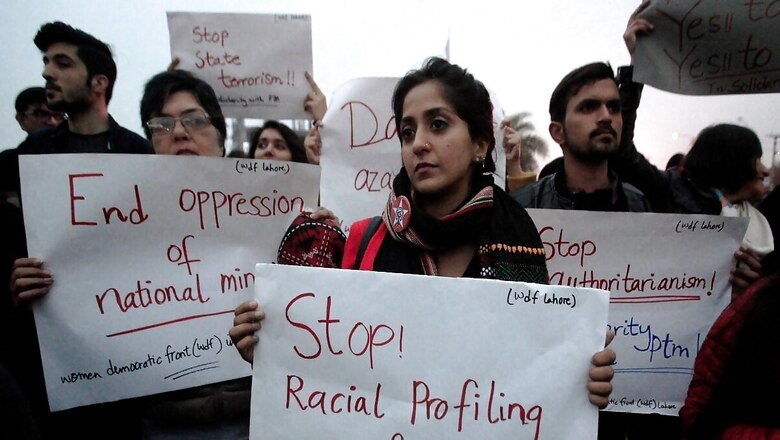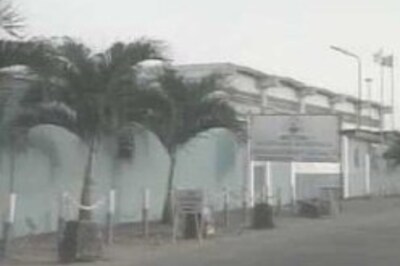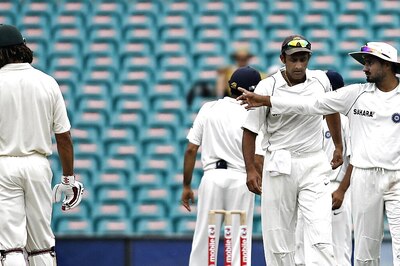
views
Background
The Pashtun Tahafuz Movement (PTM), established in May 2014 under the leadership of Manzoor Pashteen, has become a significant voice advocating for the rights and welfare of Pashtuns, particularly those in tribal areas. The movement arose in response to various issues affecting these communities, including security operations, human rights violations and socio-economic challenges.
Despite its peaceful stance and constitutional approach, PTM faced significant backlash from powerful stakeholders. The movement was often accused of inciting ethnic discord and allegedly being influenced by foreign agendas, particularly concerning claims of support from Afghanistan. Such allegations led to tensions between PTM and state authorities, culminating in restrictions on their activities and gatherings.
The PTM was founded in response to the killing of Naqeebullah Mehsud, a young man from South Waziristan. Since its inception, the movement, along with its leader Manzoor Pashteen, has faced substantial criticism from the ruling establishment, which has accused it of inciting unrest and operating under the influence of foreign agencies allegations that PTM leaders have strongly denied.
Pakistan Government Imposes Ban on Pashtun Tahafuz Movement
On October 6, 2024, the federal government announced a ban on the Pashtun Tahafuz Movement (PTM), citing national peace and security concerns. Although the PTM has long been scrutinised by influential stakeholders, it is the PML-N-led coalition that has taken decisive action to effectively marginalise the movement. The PTM is designated as unlawful under Section 11B of the Anti-Terrorism Act of 1997. A notification from the Ministry of Interior labelled the PTM as posing a significant danger to public order, leading to its classification as a proscribed organisation in the First Schedule of the Anti-Terrorism Act. This ban brings severe consequences, including the closure of PTM offices, the silencing of its public discourse, the freezing of bank accounts, and the potential arrest of its members.
During a press conference held at the General Headquarters in April 2019, then Director General of Inter-Services Public Relations, Major General Asif Ghafoor stated that the Pakistan Army intends to address the grievances of the Pashtun community. However, it would no longer accept the protest methods employed by the Pashtun Tahafuz Movement. He further alleged that the movement had received foreign funding and suggested imminent action against the group while emphasising that any measures taken would adhere to legal standards. This statement underscores the military’s increasingly adversarial stance toward the PTM.
The federal government’s ban contrasts sharply with the positions taken by various organisations and prominent figures that support the PTM and have condemned the ban. This inconsistency raises significant questions about the government’s dedication to democratic principles and human rights. Moreover, the timing of the ban coincides with the upcoming Pashtoon Qaumi Jirga, organised by the PTM for October 11.
The Human Rights Commission of Pakistan has described the PTM as a rights-based movement that has consistently employed non-violent methods within a constitutional framework. Their assertion that the government’s decision was neither transparent nor warranted underscores the lack of a clear justification for the ban, suggesting that it reflects a broader trend of suppressing dissent rather than addressing legitimate grievances.
Afrasiab Khattak, former Awami National Party (ANP) leader, highlighted the crucial timing of the ban just a few days prior to the peaceful Pashtun conference. He emphasised the perception that the government’s actions are not only repressive but also part of a historical pattern of marginalising certain communities.
The Awami Workers Party (AWP) echoed these sentiments, arguing that the ban would serve only to antagonise as well as alienate the already war-torn Pashtun population, potentially creating an environment conducive to the rise of far-right militancy. This perspective raises alarms about the implications of the government’s decision, suggesting that rather than addressing the fundamental issues faced by these communities, the ban may intensify tensions and create a vacuum for extremist ideologies.
In a joint statement, Jeay Sindh Freedom Movement (JSFM) Chairman Sohail Abro, along with other leaders Zubair Sindhi and Amar Azadi, sharply criticised the Pakistani government’s actions. This condemnation highlights the broader implications of the ban, raising concerns about the government’s commitment to fundamental rights and its tendency to suppress peaceful advocacy for marginalised communities.
However, the PTM retains the right to challenge the decision under Section 11C of the Anti-Terrorism Act, which stipulates that an organisation aggrieved by the federal government’s order may file a review application within 30 days. After hearing the application, the federal government is required to decide the matter on reasonable grounds within 90 days. However, if the application of the review is denied, the organisation may appeal to the high court within 30 days of the rejection.
The federal government’s ban on the PTM not only suppresses a legitimate political movement but also undermines fundamental rights, particularly the freedom of expression for the Pashtun community. This action represents a troubling escalation in the ongoing struggle for civil liberties in Pakistan and highlights the broader implications of marginalising voices that advocate for justice and equality.
The writer is an author and columnist and has written several books. His X handle is @ArunAnandLive. Views expressed in the above piece are personal and solely those of the author. They do not necessarily reflect News18’s views.




















Comments
0 comment